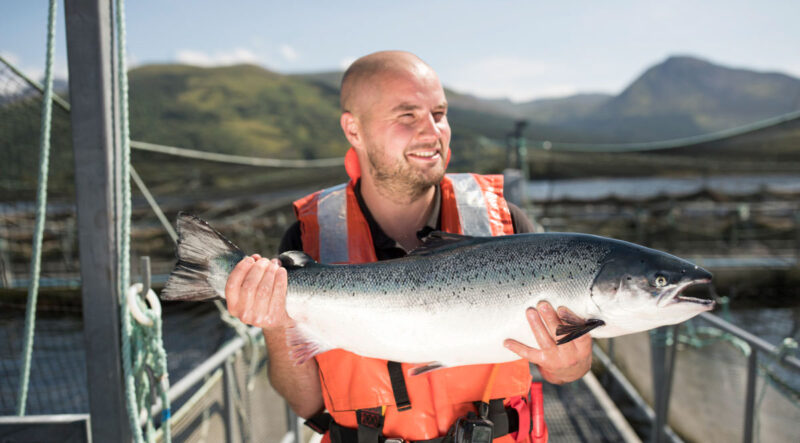United Nations calls for global expansion of aquaculture
“Aquaculture has seen enormous progress in recent decades and is destined to produce the majority of the ever-growing demand for aquatic food.” – United Nations FAO.
By Fabian Dawson
SeaWestNews
As Canada struggles with a divisive debate over the future of salmon farming in its oceans, the Food and Agriculture Organization of the United Nations (FAO) is calling on nations to strengthen aquaculture for food and sustainable development.
Having established itself as a major food producing and economic sector, aquaculture now needs to proactively integrate social responsibility and human wellbeing perspectives at all scales, including both workers and communities at large, said the FAO.
“Given that aquaculture now supplies around 50 percent of aquatic food and given its potential to contribute to so many of the UN’s Sustainable Development Goals, we all need to focus on how to move it forward in a sustainable way,” said Xinhua Yuan, FAO’s Deputy Director for Aquaculture.
“Fish and other aquatic products can and will play a major role in meeting the dietary demands of all people, helping improve the resilience of global food system, while also meeting the food security needs of the poorest,” he added.
“Aquaculture has seen enormous progress in recent decades and is destined to produce the majority of the ever-growing demand for aquatic food.”
The UN agency said the sector now needs an updated set of governing principles that ensure that it expands and intensifies, embracing modern technologies, in a way that is environmentally and socially responsible, economically viable, and able to meet the needs of present and future generations.
This need is outlined in a set of articles published this week by leading experts in the field, arising from the latest Global Conference on Aquaculture Millennium +20 held in Shanghai, organized by the FAO.
While the opportunity to sustainably produce more salmon in Canada is unparalleled in the world the Liberal government has been unduly influenced by aquaculture detractors and activists rather than relying on science and traditional indigenous knowledge to grow the industry, states the Canadian Aquaculture Industry Alliance (CAIA).
There are now several legal challenges mounted by First Nations, aquaculture service and supply companies and salmon farmers over two ministerial decisions to shut down fish farms in British Columbia’s Discovery Islands.
Current Fisheries Minister Joyce Murray and her officials are also working on implementing an open-net pen transition plan for all of BC, expected to be finalized next month.
In its entirety, the Discovery Island decision alone will shut down more than 24% of BC’s farmed salmon production and kill the livelihoods of 1,500 people in the near term, according to an independent economic analysis.
A coalition of First Nations in BC, industry leaders, government scientists and globally recognised fisheries experts have all criticized the Discovery Islands decision as a political move to appease local activists and secure their votes.
The Coalition of First Nations for Finfish Stewardship (FNFFS), has also called on the government to review the decision, respect their jurisdictions and not take actions that would remove salmon farms from their territories.
Government decisions have shut down 40% of salmon farms in B.C. since 2020, making groceries more expensive for Canadian families, increasing carbon emissions and wiping out jobs that are the lifeblood of rural, coastal and Indigenous communities, said CAIA.
Canada’s aquaculture industry generates $3.86 billion in economic activity; employs over 14,500 Canadians and provides 1/3 of the total value of Canada’s fisheries production.
It is the fourth-largest producer of farmed salmon in the world with 97 per cent of salmon produced in Canada being farm-raised, which is key to reducing pressure on limited wild stocks.
But the production levels have stagnated despite a wealth of science and innovation in the industry that shows both wild and farmed can thrive in BC waters.
Meanwhile Asia, especially China, now accounts for more than 90 percent of global aquatic animal production. The Americas, Europe and Africa combined account for 8.2 percent.
Highlighting the fact that seafood farming on average produce fewer greenhouse gas emissions than other forms of animal production, the FAO has released eight articles discussing critical themes for aquaculture, including production methods, social issues and planetary health, nutrition, genetic resources, biosecurity, governance, and inclusive market access.
Key messages include the need for climate smart solutions to use the ocean more effectively, efficiently and intelligently to supply food and the development of more efficient farmed types of aquatic species.
(Image of a salmon farm employee courtesy Mowi)

